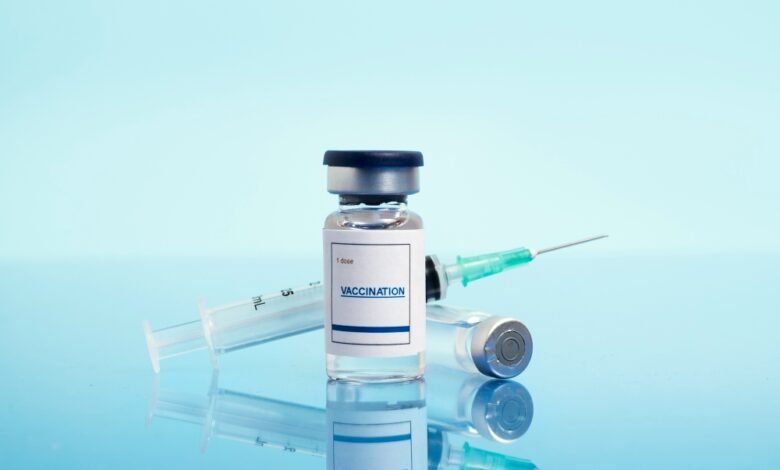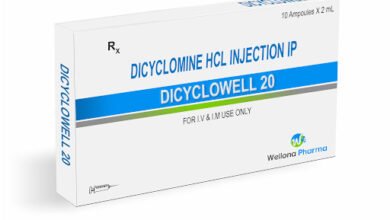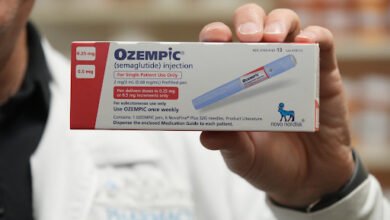What Happens If You Don’t Get Second Shingrix Shot: Risks

The recombinant zoster vaccine Shingrix can help to prevent shingles and possibly associated health issues. Shingrix is administered in two doses. The second dose should be given two to six months after the first dose. Be prepared for potentially harsher side effects from the second Shingrix shot than the first.
The Centers for Disease Control and Prevention (CDC) advises all persons 50 years of age and over, as well as those who are immunocompromised (have a damaged immune system) and younger than 19, to have the highly effective Shingrix vaccine.
Learn more about the shingles vaccination, including what to expect, why it’s given in two doses, and what happens if you don’t get second Shingrix shot.
Why Are There Two Doses of Shingrix Administered?
Two doses of Shingrix are usually administered because, according to research, they are more effective than one. Receiving two doses will provide more significant protection for older individuals who are more susceptible to the consequences of shingles, including postherpetic neuralgia (PHN), which can lead to persistent and severe nerve pain, visual loss, and pneumonia. Commonly, nerve pain treatment is quite difficult to treat.
According to a 2021 study, persons over 65 who took two doses of Shingrix compared to one dose had a substantially lower risk of developing PHN or shingles. Adults over 80 and those with weakened immune systems also benefited from improved protection against shingles complications while taking two doses of Shingrix.
Earlier, elderly and immunocompromised persons were recommended to have the live zoster vaccination, Zostavax, to avoid shingles, postherpetic neural disease (PHN), and other health issues connected to shingles. Since Zostavax is a live vaccine, the herpes zoster virus is present in a weakened form. Shingrix only utilizes a small portion of the virus as a recombinant vaccine.
Shingrix was licensed by the Food and Drug Administration (FDA) in 2017 to prevent shingles and its associated consequences. The United States no longer has access to Zostavax. Shingrix should now be administered to those who previously received Zostavax.
Research has indicated that in elderly and immunocompromised persons, the one-dose Zostavax vaccine is often less effective than two doses of Shingrix in avoiding shingles complications. As of right now, Shingrix provides the best likelihood of prevention against hospitalization due to shingles, PHN, and shingles.
Two doses of Shingrix protect against shingles and its associated problems for at least seven years. According to some research, its effects persist for nine years. When two doses of Shingrix are given to healthy persons aged 50-69, the medication is more than 90% effective in preventing PHN. It is 89% effective in people 70 years of age and above.
Who Should Get Shingrix?
Anyone who has suffered from chickenpox may subsequently experience shingles. Still, getting the shingles vaccine is essential for older persons and those with compromised immune systems, such as those with HIV/AIDS or kidney illness.
If you match the CDC criteria, you should receive two doses of Shingrix, regardless of whether you have ever had Zostavax or chickenpox.
When is the best time to take the second dose?
The CDC advises adults 50 years of age and above to take another dose of Shingrix two to six months after the first one. It is safe to take Shingrix again immediately if it has been more than six months after your initial dosage. The majority of folks don’t require a second dosage.
Some immunocompromised people could require a second dosage within a month to two months. Discuss the ideal schedule for your two doses of the shingles vaccination with your healthcare practitioner if you have a medical condition or are taking medication that compromises your immune system. May your healthcare suggest immunity booster drinks as well to improve immunity.
Also Read: Should People With Suppressed Immune Systems Get a Vaccine?
What happens if you don’t get a second Shingrix shot?
If you miss the second Shingrix shot on time, you might not be fully protected from shingles and its problems. The second shot helps your body fight off shingles better and for a long time. Without it, you might not be fully safe, and shingles could still be a risk. So, it’s important to get both shots as your doctor recommends. If you’re worried or have questions, talk to your doctor. They can help you know what’s best for you.
It’s recommended to get your second Shingrix shot as soon as you can. But if you’re running late (more than six months since your first dose), you don’t need to start again. Your protection from shingles won’t drop significantly. So, get that second shot when you can, and you should still be well-protected.
The CDC and Immunization Action Coalition, the two most reliable sources on the subject, advise doing the following:
-
Try to get your second vaccine dose as soon as possible by actively looking for it. (using the internet vaccine finder tool can be helpful).
-
There’s no need to resume the vaccination series.
-
Do not take your second dosage of the herpes vaccination (Zostavax) instead of the other one.
Is the Vaccine No Longer Effective?
Whether receiving your second dose of the Shingrix vaccine later reduces its effectiveness is not known with certainty. You should keep seeking the second dose of Shingrix and get it as soon as possible, as we know that it is required to strengthen your immune system to the point where it can be most successful in avoiding an outbreak of shingles.
Most studies suggest that if it has been more than six months, there should be little to no loss of efficacy as long as you take your second dose as soon as feasible.
It’s unknown, but one study indicates that your second dose could only be as successful if you have received it 12 months after the first one.
To maximize the likelihood that the second dose will be completely effective, stick to the CDC’s instructions and keep searching for the opportunity to administer it as soon as possible.
Also Read: Missed vaccine? Catch up
Who Should Not Get the Vaccine?
For most people, taking two doses of Shingrix is safe. However, before receiving the shingles vaccine, you ought to consult your doctor if:
-
You are carrying a child.
-
As of right now, you have shingles.
-
You are extremely allergic to any ingredient in Shingrix.
-
You have noticed an intense allergic reaction to Shingrix.
Vaccination against shingles is generally safe if you have a moderate illness, like a cold. You should hold off on taking your next Shingrix dose if you are very or moderately sick.
Even if you don’t recall ever getting the chickenpox virus or already had shingles, you should still get the vaccine. You can avoid getting shingles again in the future by using Shingrix.
When to Consult a Medical Professional?
The majority of people only have moderate, transient side effects from Shingrix. Shingrix may occasionally have more severe adverse effects. Within a few minutes or hours of taking your second Shingrix dose, if you notice any severe adverse reaction symptoms, such as:
If your Shingrix side effects are severe or don’t go away alone, you should also inform your doctor. Shingrix side effects often subside after two to three days. Additionally, heart rate is a side effect that you should take care of.
The most frequent adverse effects are injection-site redness, discomfort, and edema, along with headache, drowsiness, and nausea. These adverse effects often disappear on their own or when taken with over-the-counter (OTC) drugs like Advil (ibuprofen).
Conclusion
The FDA approved Shingrix, a vaccination to prevent shingles and their health problems. The CDC advises immunocompromised adults 19 years of age and above and adults 50 years and older to take two doses of Shingrix. Two doses of Shingrix are normally given, separated by two to six months. For most people, Shingrix is safe and effective. Though not always the case, side effects from Shingrix’s second dosage are more frequent than those from its first. Shingrix typically causes mild side effects that go away on their own.
Source link
#Dont #Shingrix #Shot #Risks



